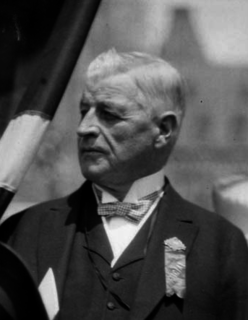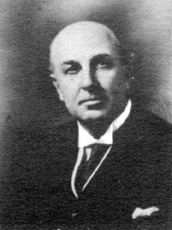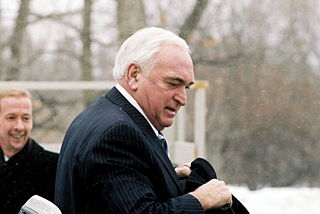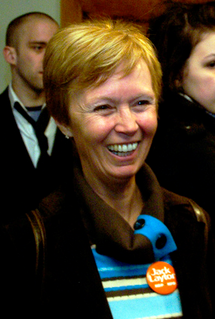It has been suggested that this article be merged into Leader of the Official Opposition (Canada) . (Discuss) Proposed since October 2018. |
This is a List of Canadian Leaders of the Opposition. The Leader of the Opposition is usually the leader of the party with the second-most seats in the House of Commons of Canada, known as Her Majesty's Loyal Opposition. He or she is entitled to the same levels of pay and protection as a Cabinet Minister, and is often made a member of the Canadian Privy Council, generally the only non-government member of the House of Commons afforded that privilege.

The Leader of Her Majesty's Loyal Opposition is the leader of Canada's Official Opposition, the party possessing the most seats in the House of Commons that is not the governing party or part of the governing coalition. The current Leader of the Opposition is Andrew Scheer, M.P., who was elected Leader of the Conservative Party on May 27, 2017.

The House of Commons of Canada is a component of the Parliament of Canada, along with the Sovereign and the Senate. The House of Commons currently meets in a temporary Commons chamber in the West Block of the parliament buildings on Parliament Hill in Ottawa, while the Centre Block, which houses the traditional Commons chamber, undergoes a ten-year renovation.
In Canada, Her Majesty's Loyal Opposition is usually the largest parliamentary opposition party in the House of Commons or in a provincial legislative assembly that is not in government, either on its own or as part of a governing coalition. Commonly referred to as the Official Opposition, this is usually the second-largest party in a legislative house although, in certain unusual circumstances, it may be a third- or fourth-largest party or even the largest party.
Contents
If the leader of the opposition party is not a Member of Parliament, then a sitting MP takes the role of acting Leader of the Opposition until the party leader can obtain a seat. If there is a leadership race occurring within the party, an MP (usually the interim or outgoing party leader) will serve as Leader of the Opposition until a new party leader is chosen.
The position is currently held by Andrew Scheer, leader of the Conservative Party, having been elected by the Conservative caucus on May 27, 2017.

Andrew James Scheer is a Canadian politician serving as Member of Parliament (MP) for the riding of Regina—Qu'Appelle since 2004. He is Leader of the Conservative Party and Leader of the Official Opposition since 2017.
Nine of the previous officeholders only served as an acting Leader of the Opposition, including Deborah Grey (the first of three women to hold the position - Grey, Nycole Turmel and Rona Ambrose).
In law, when someone is said to be acting in a position it can mean that, the position has not yet been formally created, the person is only occupying the position temporarily to ensure continuity, or the person does not have a mandate.

Deborah Cleland Grey, is a Canadian former Member of Parliament from Alberta for the Reform Party of Canada, the Canadian Alliance, and the Conservative Party of Canada. She was the first female Leader of the Opposition in Canadian history. She currently serves on the advisory board of the Leaders' Debates Commission.
Two Leaders of the Opposition have died in office: Wilfrid Laurier in 1919 and Jack Layton in 2011. [1]

Sir Henri Charles Wilfrid Laurier was the seventh prime minister of Canada, in office from 11 July 1896 to 6 October 1911.

John Gilbert "Jack" Layton was a Canadian politician and Leader of the Official Opposition. He was leader of the New Democratic Party (NDP) from 2003 to 2011, and previously sat on Toronto City Council, occasionally holding the title of acting mayor or deputy mayor of Toronto during his tenure as city councillor. He was the Member of Parliament for Toronto—Danforth from 2004 until his death.


















































